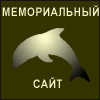| |
(11) ibid., p. 238.
(12) Quoted by Lewis Chester, Stephen Fay and Hugo Young, The Zinoviev Letter
(London: Neinemann, 1967], p. 194.
(13) Christopher Andrew, 'The British Secret Service and Anglo-Soviet
Relations in the 1920s'. Historical Journal, vol. 20, no. 3(1977). p. 705.
(14) Maugham's spell in Russia is best told in R. J. Jeffrey-Jones, American
Espionage (New York: The Free Press, 1977), ch. 7.
(15) Paul Dukes, The Story of ST-25 (London: Cassell, 1938), pp. 32 – 3.
(16) ibid., p. 293.
(17) R. H. Bruce Lockhart, Memoirs of a Britich Agent (New York: Putnam's,
1932). p. 288.
(18) 'Russian Agent Planted on Sir R. Bruce Lockhart'. The Times, 14 March
1966.
(19) The Cheka plot is explained in Richard K. Debo, 'Lockhart Plot or
Dzerzhinski Plot?', Journal of Modern History, vol. 43, no. 3 (1971), pp. 413 –
39.
(20) Kenneth Young, The Diaries of Sir Robert Bruce Lockhart: Vol 1. 1915 –
1938 (London: Macmillan, 1973).
(21) Respectively: Dukes in interview with Page, Leitch and Knightley, 1967;
and George A. Hill. The Dreaded Hour (London: Cassell, 1936), p. 260.
(22) Andrew, 'Britich Secret Service', pp. 690 – 1.
(23) Lloyd George MSS, F/203/3/6, Folder 5, 'Memorandum on the Situation in
Russia'.
(24) Bruce Page, David Leitch and Phillip Knightley, The Philhv Conspiracy
(New York-Doubleday, 1968), p. 117.
(25) Lockhart, Memoirs, p. 341.
(26) Kirn Philby, My Silent War (London: MacGibbon & Kee, 1968), p. xv.
Глава 4
(1) Sir David Petrie, Communism in India , 1924 – 1927 (Calcutta: Editions
Indian, 1972), pp.174 – 5.
(2) Page, Leitch and Knightley, Philby, p. 118.
(3) Cecil in interview with author, 1980.
(4) Nicholson in interview with author, 1967.
(5) There are many versions of the Ellis story. This one comes from an
interview with one of Ellis's senior officers. The author will forward letters
to him.
(6) Gwynne Kean, letter to author, 4 March 1980 .
(7) Interview with Page, Leitch and Knightley, 1967.
(8) 'The Profession of Intelligence', part 2, BBC Radio 4, 12 March 1980 .
(9) 'The Profession of Intelligence', part 2.
(10) Nicholson in interview with author, 1967.
(11) ibid.
12 John Whitwell, British Agent (London: Kimber, 1966), pp. 70 – 1.
(13) Christopher Andrew, 'Now Baldwin 's Secret Service Lost the Soviet Code',
Observer, 13 August 1978 .
(14) Christopher Andrew, 'Governments and Secret Services: a Historical
Perspective',
International Journal, vol. 34, no. 2(1979), p. 180.
(15) F. H. Hinsley el al., British Intelligence in the Second World War
(London: HMSO, 1979), vol. 1, p. 56.
(16) Morton in interview with Page, Leitch and Knightley, 1967. Morton said
that his network controller was 'The Times man in Rome '. The Times staff
records list Coote as its correspondent there during the relevant period.
(17) Walker in interview with Page, Leitch and Knightley, 1967.
(18) Hinsley, British Intelligence, vol. 1, pp. 57 – 8.
(19) ibid., p. 83.
(20) Wesley K. Wark, 'British Intelligence on the German Air Force and
Aircraft Industry, 1933 – 1939', Historical Journal, vol. 25, no. 3(1982), p.
640.
(21) Wark, 'British Intelligence', pp. 636 – 8. Christie's informant is
identified as Ritter in C Andrew and D. Dilks (eds). The Missing Dimension
(London: Macmillan, 1984), p. 123.
(22) Barton Whaley, 'Covert Rearmament in Germany 1919 – 1939: Deception and
Misperception', Journal of Strategic Studies, part 5 (March 1982), pp. 3 – 39.
(23) Hinsley, British Intelligence, vol. 1, pp. 49, 80.
(24) ibid., pp. 46, 76 – 7.
Глава 5
(1) Heinz Hohne, Canaris (London: Seeker & Warburg, 1979), p. 161.
(2) Gert Buchheit, Der Deutsche Geheimdienst. Geschichte der militarischen
Abwehr (Munich: List, 1966), p. 175.
(3) Nigel West, M15. British Security Service Operations 1909 – 1945 (London:
The Bodley Head, 1981), pp. 92 – 104.
(4) The de Rop – Winterbotham relationship is described by Winterbotham
himself in Secret and Personal (London: Kimber, 1969).
|
|




